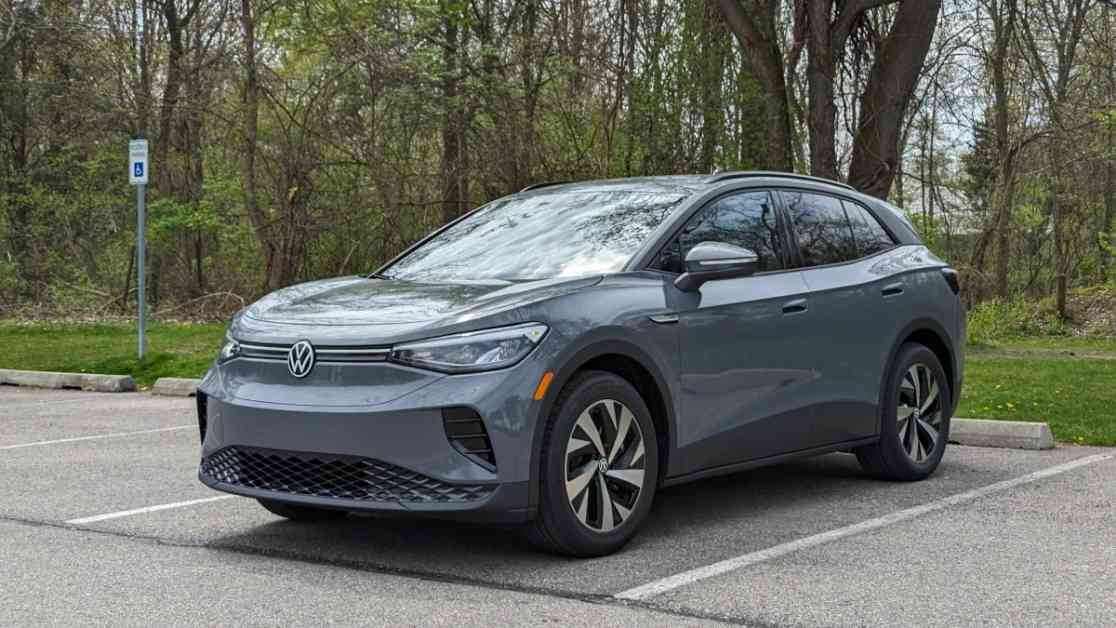Volkswagen’s Battery Chief Discusses Flexible Targets in German Newspaper Interview
In a recent interview with the German newspaper FAS, Volkswagen’s batteries chief, Thomas Schmall, discussed the carmaker’s ambitious goal of building 200 gigawatt-hours of battery capacity by 2030. However, Schmall emphasized that this target is not set in stone and will be adjusted based on the demand for electric vehicles (EVs) in the market.
Schmall stated, “Our goal is realistic, but it is not set in stone. Building battery cell factories is not an end in itself. The expansion of the factories will depend on how the market for electric cars develops.” This flexibility in setting targets reflects Volkswagen’s awareness of the rapidly changing landscape of the automotive industry, particularly in relation to the shift towards electric mobility.
Previously, Volkswagen had announced its intention to build up to 240 gigawatt-hours of battery capacity by 2030, with 200 gigawatt-hours coming from its battery subsidiary PowerCo. The company had planned to establish six battery factories in Europe by the end of the decade. However, Schmall has since re-evaluated this goal multiple times, raising questions about whether additional plants will be built or existing ones expanded.
PowerCo currently has three announced plants in Spain’s Valencia, Ontario’s Canada, and Germany’s Salzgitter, with a combined capacity of up to 170 gigawatt-hours. Schmall indicated that the plants in Spain and Canada could be expanded, but a decision on this matter has yet to be made. This uncertainty highlights the dynamic nature of Volkswagen’s strategic planning in response to market trends and consumer demand.
Subheadings:
Challenges in Battery Production
Global Expansion Strategies
Investing in Sustainable Solutions
Challenges in Battery Production
The production of batteries for electric vehicles poses various challenges for automakers, including Volkswagen. One of the key issues is ensuring a stable and sustainable supply chain for raw materials such as lithium, cobalt, and nickel. These materials are essential for the production of lithium-ion batteries, which are the primary power source for EVs.
In addition to securing a consistent supply of raw materials, Volkswagen must also address concerns related to battery recycling and disposal. As the number of electric vehicles on the road increases, there will be a growing need to recycle batteries at the end of their lifecycle to minimize environmental impact. Developing efficient recycling processes and infrastructure will be crucial for ensuring the sustainability of Volkswagen’s battery operations.
Moreover, the rapid pace of technological advancements in battery technology presents both opportunities and challenges for Volkswagen. Innovations in materials science and manufacturing techniques have the potential to improve the performance and longevity of batteries, making EVs more competitive with internal combustion engine vehicles. However, staying at the forefront of these advancements requires significant investment in research and development, as well as collaboration with industry partners and academic institutions.
Global Expansion Strategies
To achieve its ambitious battery production targets, Volkswagen is pursuing a global expansion strategy that involves establishing manufacturing facilities in key markets around the world. By diversifying its production footprint, the company aims to reduce logistical costs, minimize supply chain risks, and better serve regional markets with tailored products.
In addition to the three announced plants in Spain, Canada, and Germany, Volkswagen is considering further expansion into other regions, including Eastern Europe. The decision to build new factories or expand existing ones will depend on a variety of factors, including economic conditions, regulatory environment, and consumer demand. By maintaining flexibility in its production plans, Volkswagen can adapt to changing circumstances and capitalize on emerging opportunities in the EV market.
Investing in Sustainable Solutions
As a leading automaker, Volkswagen is committed to sustainability and environmental responsibility in its operations. This commitment extends to the production of batteries, which are a critical component of the company’s electrification strategy. By investing in sustainable solutions for battery manufacturing and recycling, Volkswagen aims to minimize its carbon footprint and contribute to a cleaner, greener future for the automotive industry.
One of the key initiatives in this regard is the development of renewable energy sources to power its battery factories. By investing in solar, wind, and other clean energy technologies, Volkswagen can reduce its reliance on fossil fuels and lower its overall environmental impact. In addition, the company is exploring partnerships with suppliers and recycling companies to establish a closed-loop system for battery materials, ensuring that resources are used efficiently and responsibly.
Conclusion
In conclusion, Volkswagen’s flexible approach to setting battery production targets reflects its commitment to adapting to the evolving landscape of the automotive industry. By closely monitoring market trends and consumer demand, the company can make informed decisions about expanding its production capacity and investing in sustainable solutions for battery manufacturing. As Volkswagen continues to ramp up its electrification efforts, it will be crucial for the company to balance growth with environmental stewardship to ensure a sustainable future for electric mobility.










